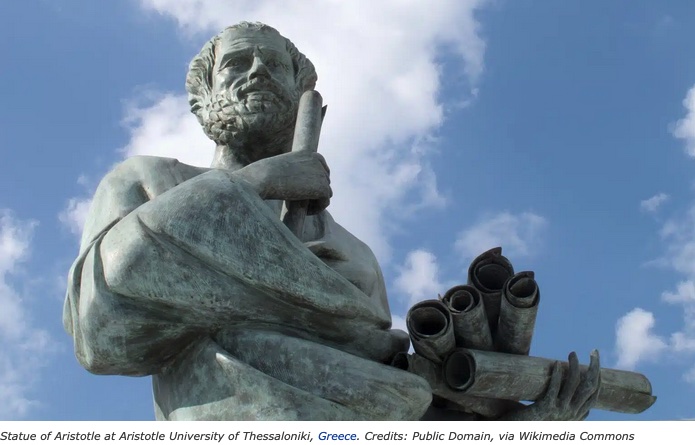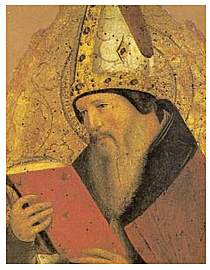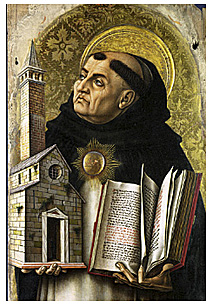
- Articles
The Moral Philosophy of Resistance to Tyranny in the Judeo-Christian Tradition by Miguel A. Faria, MD
In the book The Morality of Self-Defense and Military Action: The Judeo-Christian Tradition, author David B. Kopel objectively discusses difficult and controversial topics of moral philosophy that spill over into hotter political issues, such as the morality of armed self-defense, the justification for revolutions, resistance to tyranny, and engagement in collective military action (war) as explained by the Judeo-Christian inheritance—a main pillar of Western civilization.

Religious and philosophic authorities—such as Saint Augustine of Hippo (AD 354–430), who lived near the time of the fall of Rome; John of Salisbury (1120–1180), the Bishop of Chartres and a leader of the Early Renaissance of the 11th century—refused to submit to illegal government authority. Others went further. Saint Thomas Aquinas (1225–1274) and the more radical Spanish Second Scholastics, including the Spanish Jesuits, Juan de Mariana and Francisco Súarez, asserted the right of revolution against tyrannical governments. These writers also wrote that standing armies were inconsistent with free governments, and that citizen militias were essential to protect the Natural Rights of the people and prevent usurpation by either kings or even elected bodies. These writings percolated from the Catholic world and in time found a home with Protestant leaders ushering in the Reformation.
Catholic teachings embraced Natural Law, affirming the personal right to self-defense, particularly to protect the lives of others, especially the weak and defenseless. Supporting these views about Natural Law were the foremost writers of antiquity—Aristotle (384–322 BC) and Cicero (106–43 BC). Saint Thomas Aquinas reconciled the metaphysics and political writings of Aristotle to Catholic dogma, while Rabbi Moshe Maimonides (1153–1204) attempted to do the same for Judaism. The right to self-defense extends from the individual and his household to the community, as to oppose government tyranny; and to nations, as to engage in Just Wars to oppose aggression as long as there is a chance of success, and the number of casualties is limited.

According to the Judeo-Christian tradition, then people have a right to self-defense and a moral duty to defend their families and neighbors, and the community has a right to collective self-defense to curb or prevent tyrannical government. Arms are necessary to exercise those rights. And it is for this reason that governments, which tend to be tyrannical, disarm the people. Liberty and the right to preserve life through self-defense are Natural Rights of the people—that is, gifts from God or Nature to man. Governments that attempt to circumvent those Natural Rights are no longer legitimate governments, but usurpations. Bad governments and usurpations are already in rebellion against God, and therefore, man has a legitimate right to self-defense in the form of insurrection or revolution to overthrow those governments.
Freedom concepts reached fruition and eloquence in the writings of John Locke, who added that the function of government was to protect the Natural Rights of the citizens and that tyrannical governments could be legitimately overthrown. Protestant leaders, including French theologian John Calvin (1509–1564) and Scottish minister John Knox (c. 1514–1572), also believed that the right of violent resistance to governments, which did not follow the precepts of God, was legitimate. However, they imposed the caveat that intermediate magistrates must lead the people since the people themselves do not have that right. Support by the nobility, then, was necessary. But Locke, like Salisbury before him, affirmed that the right of violent resistance was inherent to all citizens; hence, intermediate magistrates were not required.
The doctrine of Just Revolutions came from both extremes of Christian views—Catholics, as we have seen, and Calvinists, who adopted similar ideals, but not from Lutherans or Anglicans, who were more prone to preserve the status quo of government authority in North Germany and Scandinavia, and in England, respectively.
In the United States, the Anglican Church was Loyalist generally, except in the South, while Calvinists sects were pro-revolutionist. The intellectual origins of the American Revolution have been said to have been influenced greatly by the ideas of John Locke and the Enlightenment. However, they were also heavily influenced by Calvinist ideas coming from New England and distilled from Knox and Presbyterianism stemming out of Princeton College under the direction of John Witherspoon (1732–1794).
Whig member of Parliament Edmund Burke went further and admonished his fellow Parliamentarians that the Americans were “not of submissive of mind and opinion,” and it would be best not to try to subjugate them. The advice of Burke, an intellectual father of modern conservatism, was not heeded. The Sunday sermons emanating from Protestant American pulpits in the years immediately before 1776 preached the message of rebellion and violent resistance to tyranny and likened the American colonists to the belligerent Israelites searching for the Promised Land of American Independence. The Americans could not be subjugated. And on April 19, 1775, the American militia met the British Red Coats at Lexington and Concord and as Ralph Waldo Emerson wrote in his “Concord Hymn”: “The embattled farmers stood and fired the shot heard round the world.”
Criminal violence is another matter. Too many criminals by their actions deny that human life is sacred, and terrorists continue to carry out acts of savagery throughout the world. Innocent civilians are victims of mass shootings by deranged killers and terrorist suicide bombings and increasingly being plowed over by deadly moving vehicles driven by Jihadists. Christians in particular are subject to selective terrorist attacks in foreign lands. And yet, the public is constantly being told to seek government protection, that citizens should not respond with violence to these frequently deadly attacks. Christian Scripture is often cited as invoking pacifism—for example, Matthew 5:39, which states, “If someone slaps you on the right cheek, offer the other cheek also.”
Scripture must be interpreted in its totality. Thus, moral points cannot be made by isolated passages. Kopel wrote: “… attempting to show that much of what the Bible has to say about the legitimacy and illegitimacy of violence can be read in a variety of ways all of which are reasonably good-faith interpretations.”
Conclusions based on the totality of the Scriptures—both in the words and actions of the historic Judeo-Christian religious leaders—can be drawn about the morality of self-defense, participation in Just Wars, and the justification for rebellion and revolution against tyrannical governments. Self-defense is not only a personal right but also a moral duty, especially when protecting others, individually or collectively.
Bolstering Kopel’s conclusions is the Judeo-Christian tradition, encompassing the Hebrew Bible, particularly the first five written books called the Torah that discuss Jewish law; the Talmud, the Oral Torah given by Moses to the Israelites and written about 200 BC; and the subsequent rabbinical commentaries of the Middle Ages, particularly the Mishneh Torah, penned by the medieval scholar and physician, Moses Maimonides, and other Jewish. In fact, Maimonides elaborated on the laws of self-defense and affirmed the right not only of the homeowner but also of any other good citizen, to kill a burglar.
For Christians, the Judeo-Christian tradition includes the Old and New Testaments followed by the teachings of the Catholic and Orthodox Churches; the writings of the early Protestant leaders of the Reformation, including Martin Luther, John Calvin, and John Knox to modern Christian writers.
In the modern world, like a good state, which has the right of self-preservation and national security, good citizens of all religious persuasions, should have the right to armed self-defense and the moral duty to defend themselves and their families from terrorists, madmen, or tyrannical governments.
This article is excerpted and edited from Dr. Faria’s book Contrasting Ideals and Ends in the American and French Revolutions.
Dr. Miguel A. Faria is Associate Editor in Chief in neuropsychiatry; and socioeconomics, politics, and world affairs of Surgical Neurology International (SNI). He is the author of numerous books, the most recent, Cuba’s Eternal Revolution through the Prism of Insurgency, Socialism, and Espionage (July 2023); Stalin, Mao, Communism, and Their 21st-Century Aftermath in Russia and China (2024); and Contrasting Ideals and Ends in the American and French Revolutions (December 2024)— the last four books by Cambridge Scholars Publishing, Newcastle upon Tyne, U.K.
Copyright ©2025 HaciendaPublishing.com